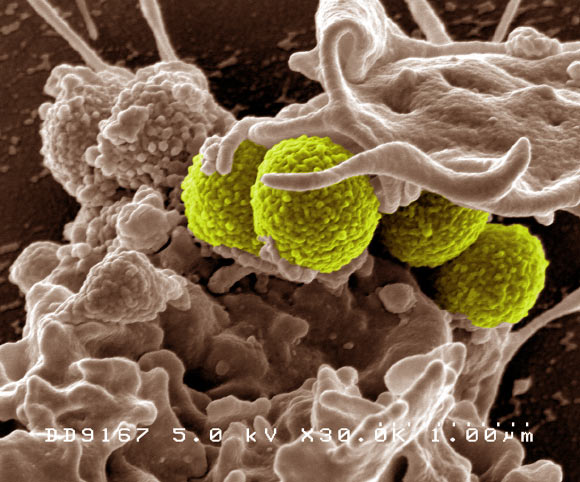University of Liverpool scientists have taken a significant step toward unlocking the medical potential of a new class of potent antibiotic capable of killing “superbugs” including MRSA without detectable resistance.
The researchers have developed simplified synthetic versions of the molecule teixobactin, used by producer bacteria to kill other bacteria in soil.
They have developed and tested a unique library of synthetic versions of the “game changing” antibiotic, optimizing key features of the drug to enhance its efficacy and safety, plus enabling it to be inexpensively produced at scale.
Lead researcher Dr. Ishwar Singh said: “Introducing synthetic diversity to generate the library of synthetic teixobactins is important to overcome the high failure rates associated with the next stages of drug development.”
This work builds upon pioneering research by Dr. Singh, an expert in antimicrobial drug discovery and development and medicinal chemistry at Liverpool’s Centre of Excellence in Infectious Diseases Research (CEIDR). The latest results were achieved as part of a Small Business Research Initiative (SBRI) project, funded by the Department of Health and Social Care. This program was delivered by Innovate UK on behalf of DHSC, with a goal of creating five lead compounds for future use in the battle against antimicrobial resistance (AMR).
The research has proved that simplified synthetic teixobactins kill a wide range of bacteria taken from human patients, where current antibiotics fail. They also successfully eradicated MRSA in mice and were found to accumulate at sites of infection for up to 24 hours in amounts greater than that required to kill superbugs.
This suggests that in future, patients may be treated with just one dose of teixobactin per day for systemic life-threatening resistant bacterial infections. The synthetic teixobactins have been found to be robust and stable at room temperature for years thus do not need a cold chain for distribution and storage, thus have potential to tackle resistant bacterial infections in different clinical settings globally.
https://medicalxpress.com/news/2022-03-scientists-synthetic-antibiotics-millions.html


